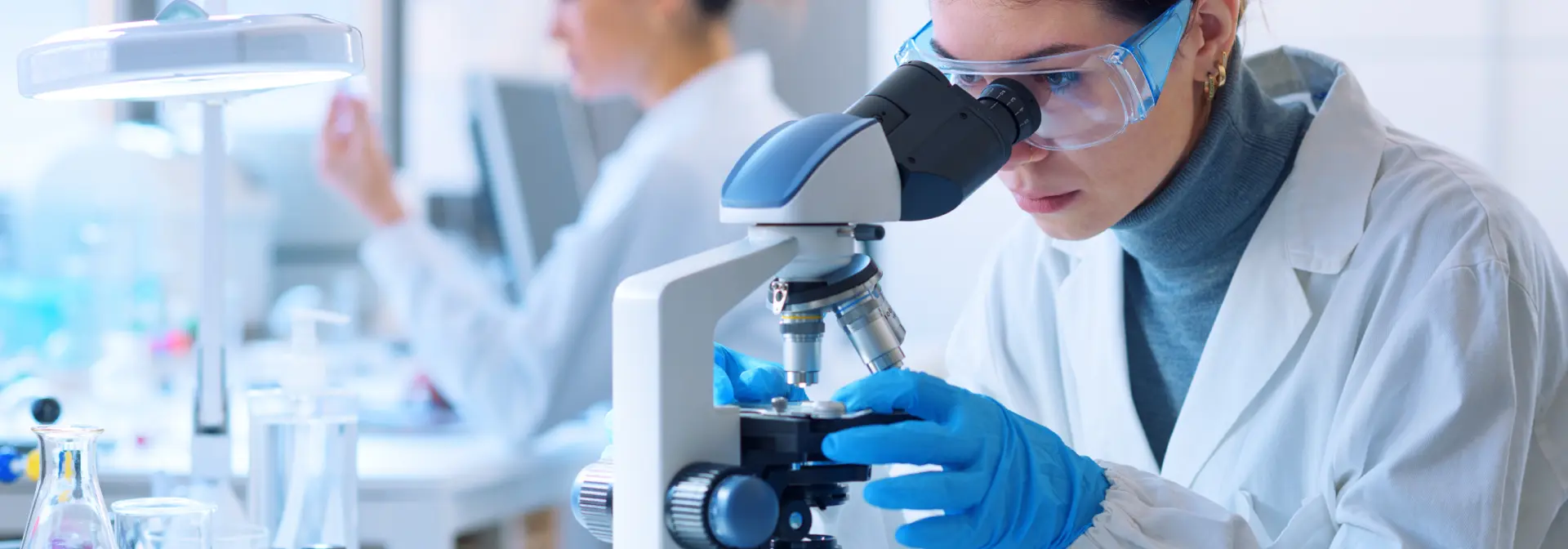Health research

Human health related research conducted in the Institute of Life and Earth Sciences is expanding, and concerned with evaluating:
- the ability of a wide range of substances, such as nanomaterials, to cause adverse health effects following human exposure,
- the mechanisms underlying the development of human disease
- the role of nutrition as a means of prevention against human disease
- the relationships between environmental exposures and health.
Research activities in these areas are very multidisciplinary and fall into the below four main themes.
Nano-Safety Research Group: Human Health
The Nano-Safety Research Group, led by Prof. Vicki Stone, Dr Helinor Johnston and Prof. Teresa Fernandes specialises in the assessment of hazards posed by nanomaterials to human health and the environment. Nanotechnology involves the development and use of materials and objects at the nanoscale (1-100nm). To put the size range of interest into perspective, the size of nanomaterials is comparable to that of the molecules that make up cells, like DNA and proteins. Nanomaterials can exist naturally in the environment, however there has been an increase in the intentional production of nanomaterials over recent years. These 'engineered nanomaterials' are being made and developed because substances change their properties when they are so small. The term nanomaterial actually refers to a diverse group of materials that vary in their physical and chemical properties, such as their size, composition, shape and charge. These properties make nanomaterials useful for the development of a wide variety of new products including medicines, food additives, cosmetics, food packaging, electronics, sports equipment and clothing.
Due to the widespread use of nanomaterials, it is critical to identify any potential risks they may pose to human health or the environment. Current research suggests that some nanomaterials are relatively safe while others are more harmful, and it appears that this is linked to the different physical and chemical properties of each nanomaterial. The current uncertainties surrounding nanomaterial risk mean that research is required into nanomaterial safety. Addressing these knowledge gaps will help to ensure that innovation in the rapidly developing area of Nanotechnology is not stifled by concern, but instead by determining risks associated with nanomaterials we can promote the safe, sustainable and responsible use of this technology.
The research conducted by the Nano-Safety Research Group aims to determine whether different types of nanomaterials can cause adverse effects following human exposure. As nanomaterials are incorporated into a variety of different products it is expected that exposure will occur in occupational, consumer and environmental settings via inhalation (lungs), ingestion (gut), injection (blood) and dermal application (skin). Accordingly our research group evaluates the hazards (toxicity) posed by nanomaterials following exposure via different routes, at the exposure site and a number of secondary target sites due to the ability of nanomaterials to become quite widely distributed in the body following exposure (e.g. lung, gut, liver, kidneys, immune system). Aligning nanotoxicology testing with the 3Rs principles of scientific research (the reduction, refinement and replacement of animal use) is a key are of our research activities. We also investigate the efficacy and toxicity of nanomedicines that improve the diagnosis and treatment of cancer, cardiovascular disease and infectious disease (e.g. TB).
Funding for our research comes from various sources including the European Commission (Horizon 2020), UKRI (e.g. BBSRC, NC3Rs), charities and industry. The following ongoing projects investigate the toxicity of nanomaterials to human health:
| Project | Funder | Website |
|---|---|---|
| GRACIOUS: Framework for grouping and read-across of nanomaterials/nanoforms for regulatory risk assessment and safe-by-design | Horizon 2020 | https://www.h2020gracious.eu |
| PATROLS: Physiologically Anchored Tools for Realistic nanOmateriaL hazard aSsessment | Horizon 2020 | https://www.patrols-h2020.eu/ |
| BIORIMA: BIOmaterial RIsk MAnagement | Horizon 2020 | https://www.biorima.eu/ |
| Developing alternative models to evaluate the impact of nanomaterials on neutrophils during the stimulation and resolution of inflammation | NC3Rs | https://www.nc3rs.org.uk/developing-alternative-models-evaluate-impact-nanomaterials-neutrophils-during-stimulation-and |
| Investigation of the toxicity of mineral clays | BYK/ Altana | |
| SAVE: Single-Administration Vaccine Enhancement | BBSRC | https://gtr.ukri.org/projects?ref=BB/R007616/1 |
We were previously involved in the following EU projects: SUN, MARINA, BioBeauty, ITS-NANO, ENRHES, Quality Nano, NanoImpact Net, NanoSolutions, FutureNanoNeeds, NANoREG, Nanomicex, and PARTICLE_RISK The Nano Safety Research Group has been funded previously by UK national funding bodies and Government (e.g. NERC, EPSRC, MRC, BBSRC, Defra), industry (e.g. UniLever, ECFIA, GSK), charities (e.g. the Colt Foundation) and NGOs (e.g. PETA).
Key contacts
Human Exposure Science and Health
Our genes and the exposures we encounter throughout life determine our health. Understanding how and when people are exposed to chemicals, dusts, noise, air pollution and many other environmental factors can make an important contribution to identifying the causes of disease. By changing our environment or the way we live our lives we can reduce the risks of many diseases. We are particularly interested in:
- Characterising personal activity in relation to exposure.
- Improving methods of assessing external exposures.
- The impact of air pollution on health.
- Evaluation of the burden of disease from work.
Understanding the causes of ill-health offers real opportunities for public health interventions to prevent future disease.
Professor John Cherrie leads this area of research. We collaborate with scientists at the Institute of Occupational Medicine (IOM) and others.
Key contacts: